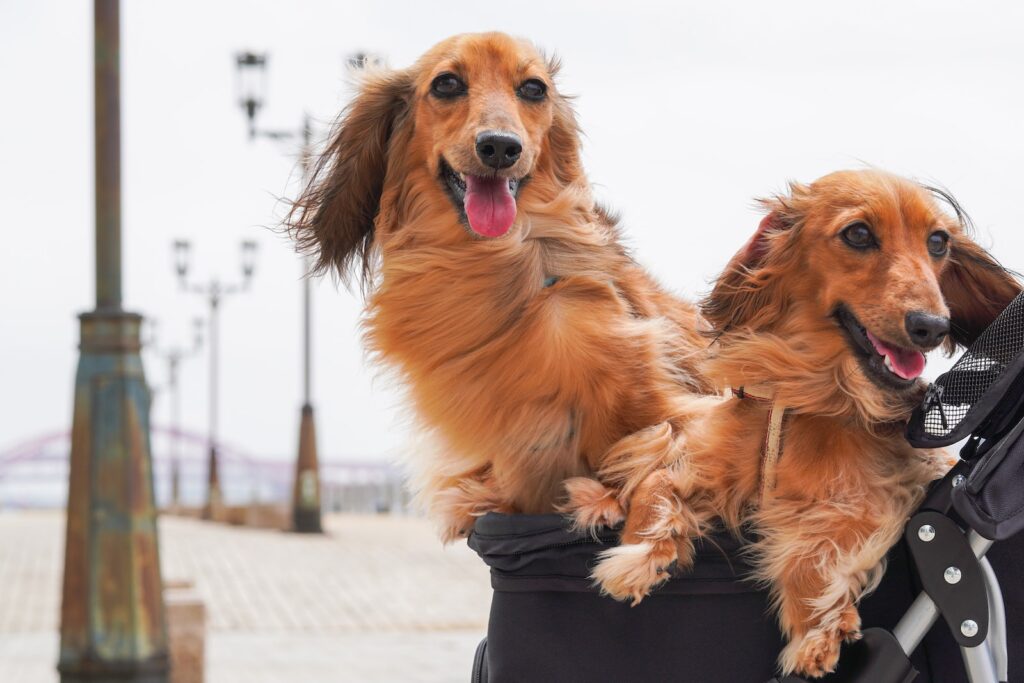Can Dogs Eat Lamb? — Yes, They can
Yes, dogs can eat lamb as part of their diet. Lamb is a rich source of protein and can provide several health benefits to dogs when included in their meals. However, it is important to feed lamb to dogs in moderation and with caution, as some dogs may have allergies or sensitivities to this protein source.
Can Puppies Eat Lamb?
Yes, puppies can also eat lamb, but it should be introduced gradually and in small portions. Lamb can be a nutritious addition to a puppy’s diet, helping with their growth and development. However, it is crucial to consult with a veterinarian before feeding your puppy lamb to ensure it is suitable for their specific needs.
Things to consider when feeding lamb to puppies?
When feeding lamb to puppies, it is important to consider their age, size, and overall health. Puppies have different nutritional requirements than adult dogs, so it is essential to choose appropriate portions and ensure a balanced diet. Additionally, closely monitor their response to lamb and look out for any signs of allergies or digestive issues.
Nutritional Benefits of Lamb for Dogs — Why Lamb is Good for Dogs?
Protein Source
Lamb is an excellent source of protein for dogs. Protein is vital for maintaining strong muscles, supporting the immune system, and promoting healthy skin and coat. Including lamb in your dog’s diet can help meet their protein requirements and ensure optimal overall health.
Vitamins and Minerals
Lamb contains essential vitamins and minerals that are beneficial for dogs. It is particularly rich in vitamin B12, iron, zinc, and selenium. These nutrients contribute to energy production, proper oxygen transport, and maintaining a healthy immune system in dogs.
Omega‑3 Fatty Acids
Lamb also contains omega‑3 fatty acids, which have anti-inflammatory properties and promote brain health in dogs. These fatty acids can contribute to a shiny coat, reduce skin allergies, and support cardiovascular health.
Potential Allergies: Can Dogs Be Allergic to Lamb?
Although lamb is generally safe for most dogs, some dogs may develop allergies or sensitivities to this protein source. Allergies to lamb are relatively rare compared to other protein sources like beef or poultry. However, if you notice any allergic reactions such as itching, skin rashes, digestive problems, or respiratory issues after feeding your dog lamb, it is crucial to consult with a veterinarian to determine the best course of action.
Symptoms of Lamb Allergies in Dogs
- Hives: Look for red, raised bumps on the skin.
- Itching or Scratching: Notice if your dog frequently scratches or chews on their paws or body.
- Diarrhea or Vomiting: Observe any abnormal bowel movements or signs of an upset stomach.
What to Do If Your Dog Shows Symptoms?
- Consult a Veterinarian: Reach out to a veterinarian for proper diagnosis and guidance.
- Elimination Diet: Your veterinarian may recommend an elimination diet to identify the specific allergen causing the symptoms.
- Alternative Protein Sources: If your dog is allergic to lamb, your veterinarian can suggest other protein sources suitable for their dietary needs.
Recommended Amount: How Much Lamb Can a Dog Consume?
The recommended amount of lamb for a dog to consume depends on various factors such as their size, age, activity level, and overall health. As a general guideline, lamb should only make up a portion of their diet and should be balanced with other nutrient-rich foods. Consult with a veterinarian to determine the ideal quantity of lamb to include in your dog’s meals.
Things to Consider When Feeding Lamb to Dogs
When feeding lamb to dogs, it is essential to choose high-quality, lean cuts of lamb and remove any excess fat or bones. Cook the lamb thoroughly to ensure it is safe for consumption and avoid using seasonings or spices that may be harmful to dogs. Additionally, monitor your dog’s weight and overall health to adjust their lamb intake accordingly.
How to Feed Lamb to Dogs: A Quick Guide
Feeding lamb to dogs can be a delightful experience for both you and your furry friend. Here’s a quick guide to ensure a safe and enjoyable meal:
Roasted Lamb with Sweet Potatoes
This recipe combines the goodness of lamb with sweet potatoes, creating a nutritious and tasty meal for dogs.
Lamb and Rice Stew
A warm and comforting lamb and rice stew can be a hearty option for your dog, providing them with essential nutrients.
Lamb and Vegetable Medley
This medley incorporates lamb, mixed vegetables, and a touch of broth, resulting in a well-rounded and flavorful dish for dogs.
Conclusion
Lamb can be a healthy and delicious addition to a dog’s diet, offering them essential nutrients and a protein source. However, it is crucial to feed lamb in moderation and with caution, considering any potential allergies or sensitivities. Consult with a veterinarian to determine the most suitable lamb feeding approach for your dog, ensuring their optimal well-being and enjoyment of mealtime.




